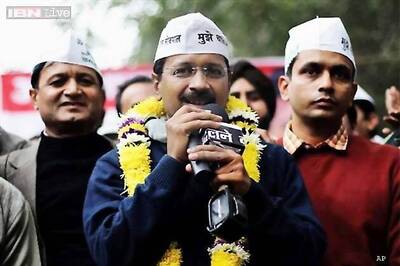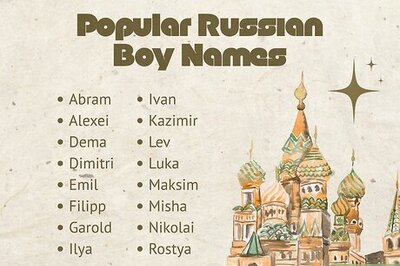
views
Of the 13 constituencies, which are up for grabs in the first phase of the Jharkhand assembly election, nine have never elected the same party in two consecutive assembly polls since the formation of the state in 2000.
Among the seats going to polls today, Bhawanthpur, Bishunpur, Bishrampur, Chatra, Daltonganj, Garhwa, Hussainbad, Latehar, and Panki have never returned a candidate from the same party in two back-to-back elections. In other words, voters in these constituencies have changed their representative party every five years. Only Chhatarpur, Gumla, Lohardaga, and Manika buck this trend.
Jharkhand has had three assembly elections since it was carved out of the erstwhile Bihar in 2000. These elections were held in 2005, 2009, and 2014.
For the ruling Bharatiya Janata Party (BJP), which recently lost power in Maharashtra after dramatic turn of events over the past one month, it would be crucial to overcome this trend if it wants to retain the state. The saffron party had won six of these 13 seats in 2014 with a contested vote-share of 27.78 per cent (vote-share only on the seats that the party contested; 12 in BJP's case) and three of these seats are those which tend to switch between parties in alternate elections.
While the BJP has consistently been able to increase its vote-share (contested) across these 13 seats, it was in the previous election that it was eventually able to convert the high vote-share into seats. The saffron party, which contested seven and eight seats in 2005 and 2009, respectively had only managed to win two seats in 2005 and three seats in 2009 despite securing a quarter of the vote-share on both these occasions.
Among the opposition parties, while the Congress has also improved its contested vote-share in the constituencies voting on Saturday from 15.85 per cent in 2005 to 20.74 per cent in 2014, it could only secure Panki in 2014. In 2005 and 2009, the grand old party had managed to win just one and three seats, respectively.
Congress’ ally in the current elections and former chief minister Shibu Soren’s Jharkhand Mukti Mocha (JMM), has also not performed well historically in the constituencies voting on Saturday. The state party had won just a single seat each in 2005 and 2014 while it failed to open its account in 2009.
Lalu Yadav’s Rashtriya Janata Dal (RJD), which is only contesting from Hussainabad, Chatra and Chatarpur in the first phase, has been the second-most successful party after the BJP in terms of seats won. For instance, it had won the highest five seats (of these 13) in 2005 whereas it secure two in 2009. However, the party failed to win any seat in the previous election despite getting over 19 per cent of the total votes in the six seats that it fielded its candidates in.
Elections in Jharkhand are scheduled to be held over five phases and the results will be declared on December 23. it will be interesting to see if any of the seats polling today vote different to what their past trends suggest.




















Comments
0 comment